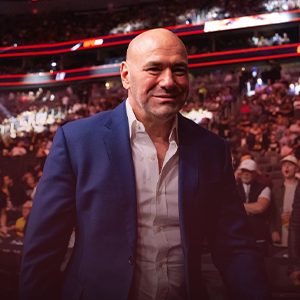While the goal of every casino player is largely the same, there’s more to the casino experience than just throwing some chips around. In fact, walking away with more than you came with should not be your only objective when playing casino games.
One of the primary notions of gambling is that it’s a form of entertainment, not a way to reliably earn money. Unless you’re playing slots or other machines, gambling will invariably get you in contact with a dealer.
As you probably know, the croupier is primarily responsible for actually running the game. They have to be personable, knowledgable, and courteous – and that’s just the bare minimum.
If your dealer is good at their job, the game itself will run smoothly. They will know when to pick up the pace and when to slow down and let the excitement run its course. They will never make silly mistakes that could invalidate rounds or winnings.
More than anything else, though, croupiers will make you feel welcome and confident, allowing you to kick back and get the most out of your time gambling.
The Importance of Croupiers from a Player’s Perspective
Many of you are probably dismissive of the claims we’re making. Sure, it’s a plus to have a nice dealer, but that won’t make you win more, will it?
It won’t, but games run by skilled dealers are more consistent and reliable.
Anyone who ever had a round of blackjack go sour because of a slippery card will know exactly what we’re talking about. Mishaps and technical issues rarely happen at good casinos, but they still do. And when they do, it always seems to fumble the round that was going your way.
All of these seem like minor issues at best, but details add up to make for a perfect gambling session.
Another reason players are upset by accident-prone dealers is that it may disrupt the flow of strategies. For example, a null round can mess up your card count at a blackjack table, leading to unnecessary frustration.
Characteristics of Good Dealers
So what makes a good dealer, in the end? Let’s consider some main characteristics.
1. Knowledge of the Games
First and foremost, good casino dealers know the ins and outs of the games they’re dealing with, which of course greatly reduces the number of mistakes they make.
Some casino games are easy for them to learn, like blackjack and roulette. Others, especially craps, can get quite complicated and take several months for dealers to master. But the good ones master them all.
This seems like a simple matter from the outside but remember – theoretical knowledge of a game’s rules is very different from being able to keep up with multiple players, niche rules, and the pressure of working with other people’s hard-earned money.
2. Dealing their Games at Proper Speed
You often see dealers in casinos who are agonizingly slow getting the cards around the table. Then there are those hotshots who are so fast you have to strain to keep up with them, which can be infuriating when you’re deciding whether to hit or stand in blackjack or make odds and other additional bets at craps.
What good dealers do is deal their games at a speed that is most convenient to a majority of the players at their tables and to their employers, the casino bosses. Often games dealt too fast prevent casino supervisors from adequately following them.
Moreover, a good dealer can read the room well enough to adjust their pace when needed. No one will mind if they blaze through a few uneventful hands, but carefully building up the excitement of the next crap shot can enhance everyone’s fun.
3. Being Courteous Without Being Too Friendly
The last thing casino-goers want to see is a frowning, mad-at-the-world dealer. People do not want to gamble at tables where it seems the dealer is rooting against them. Casinos do not want to see cold-as-ice dealers either because they have a negative effect on the bottom line.
Just the same, over-friendly dealers have a negative impact. They may slow down the games with constant chatter and joking with customers, and from a casino point of view, may be more susceptible to helping players along, even to the point of forming cheat partnerships against the house.
Besides, dealers who get a bit too familiar can drive off customers or seem desperate for tips.
It’s a thin tightrope to walk, yes, but such are the challenges of service work.
4. Not Soliciting Tips
Aggressively asking for tips is a real no-no in gaming jurisdictions that allow dealers to receive tips.
But in spite of that, many dealers subtly or openly do just that. Dealers who do can often make players feel uneasy, leaving them to think that they are required to tip dealers, in the same manner, they tip waiters in restaurants.
This puts pressure on players in an atmosphere that already has built-in pressure on them. After all, a player on a hot winning streak at one particular table may still not have recovered his losses suffered on a previous table. They would understandably be quite annoyed by a dealer hustling him for tips.
Good dealers make their tips simply by being efficient and courteous at their tables. Anything else can quickly send them down the wrong path.
5. Having Thick Skin
When players lose money, they tend to blame anything or anyone except themselves. Some complain about foul cards, rigged games, or cursed luck. Others will blame the person currently closest to them – which tends to be the dealer.
It’s not a fair situation, but it’s one most dealers will find themselves in. Maintaining your composure and professionalism at all times is by no means easy. Especially after years of work.
However, it will reflect well on both the dealer’s career and mental well-being. Always keep a healthy separation between the game and reality – a piece of advice that goes both ways, for dealers and players.









































 Roulette
Roulette
 Blackjack
Blackjack
 Baccarat
Baccarat
 Poker
Poker
 Sic Bo
Sic Bo
 Dragon Tiger
Dragon Tiger
 Game Shows
Game Shows  Top 5 Games
Top 5 Games  See more
See more  Roulette Casinos
Roulette Casinos  Low Limit
Low Limit  High Limit / VIP
High Limit / VIP  Exclusive
Exclusive  How to Play
How to Play  Basic Strategy
Basic Strategy  Top Tips
Top Tips  FAQ
FAQ  Blackjack Casinos
Blackjack Casinos  Baccarat Casinos
Baccarat Casinos  Bonuses
Bonuses  Poker Casinos
Poker Casinos  Game Providers
Game Providers  Sic Bo Casinos
Sic Bo Casinos  Dragon Tiger Casinos
Dragon Tiger Casinos  Credit and Debit Card
Credit and Debit Card  e-Wallet
e-Wallet  Cryptocurrency
Cryptocurrency  Bank and Checks
Bank and Checks  Pay by Phone and SMS
Pay by Phone and SMS  See more
See more  How-To Guides
How-To Guides  Top Lists
Top Lists  In-Depth
In-Depth  Strategy
Strategy  Casino & Games
Casino & Games  Insight
Insight  News
News  Promotions
Promotions 
 Guide to Live Casinos
Guide to Live Casinos  Top 10 Live Casino Tips
Top 10 Live Casino Tips  Studio Locations
Studio Locations  FAQ & Help
FAQ & Help  Meet The Dealers
Meet The Dealers  Our Awards
Our Awards  How We Rate
How We Rate  Responsible Gambling
Responsible Gambling 




























 ENG
ENG 






 Facebook
Facebook
 Pinterest
Pinterest
 Twitter
Twitter
 LinkedIn
LinkedIn
 Copy Link
Copy Link 





























